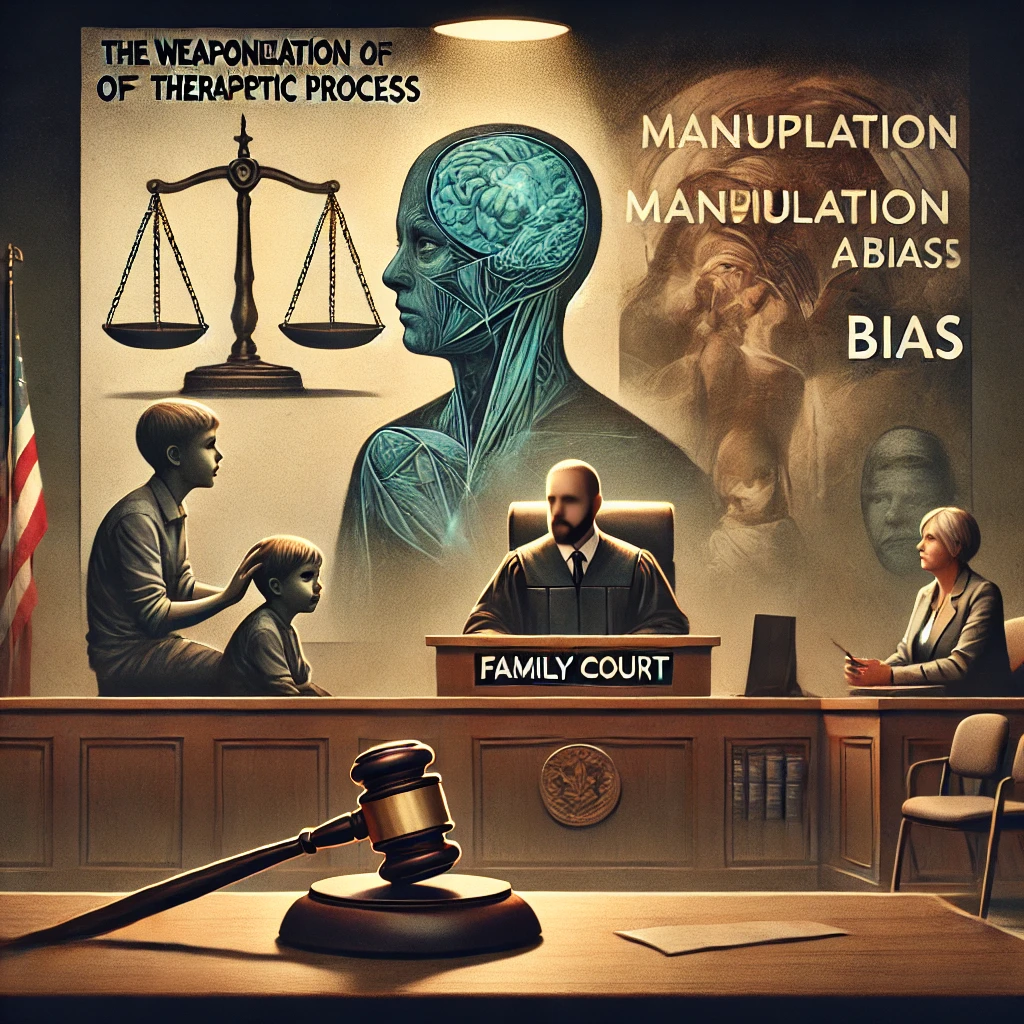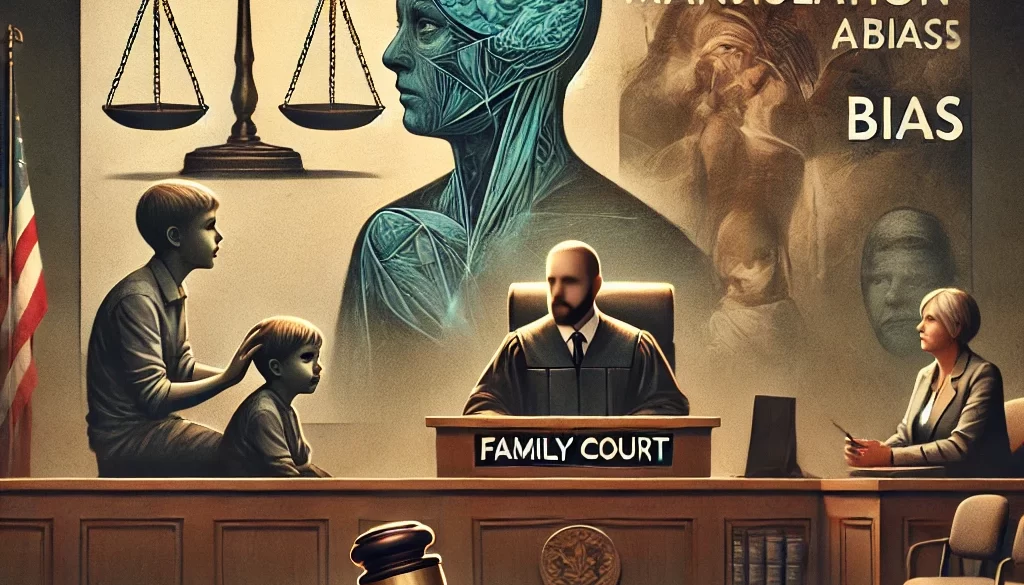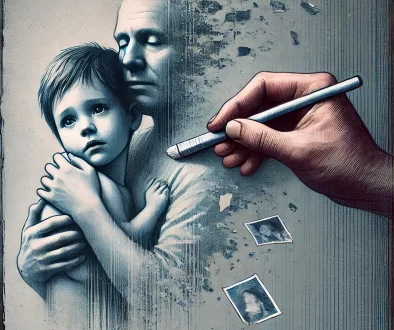Weaponization of the Therapeutic Process: A Critical Insight for AFCs and Family Court Judges
Parental alienation, a form of emotional and psychological abuse, often thrives in the complex dynamics of custody disputes. One of the most insidious tools alienating parents employ is the weaponization of the therapeutic process. This tactic involves manipulating mental health professionals and the therapeutic system to fabricate or reinforce a narrative that serves the alienating parent’s agenda, typically to undermine the targeted parent’s relationship with the child.
It is essential for Attorneys for the Child (AFCs) and family court judges to recognize this tactic, as it profoundly impacts custody outcomes and the well-being of the child.
The Anatomy of Therapeutic Weaponization
-
Therapist Shopping:
- Alienating parents often seek out therapists who are more likely to validate their claims, whether intentionally or through unconscious bias. These professionals may lack experience in recognizing parental alienation or may be predisposed to align with the presenting parent due to the emotional narrative they provide.
-
Narrative Control:
- The alienating parent dominates therapy sessions, steering the conversation to portray the targeted parent negatively. They may present exaggerated or false claims of abuse, neglect, or emotional harm.
- In cases involving children, alienating parents may coach them to repeat rehearsed narratives, making it appear that the child is independently expressing fear or discomfort around the targeted parent.
-
Selective Engagement:
- Alienating parents may engage therapists solely to gather written reports or testimony for court, rather than for the genuine purpose of improving family dynamics or supporting the child’s emotional health.
-
Excluding the Targeted Parent:
- Alienating parents may insist on therapy for the child but block the targeted parent’s participation, creating a one-sided narrative. In cases where both parents are involved, the alienating parent may undermine joint efforts by dominating sessions or refusing to cooperate.
-
Weaponizing Diagnoses:
- Alienating parents may manipulate the therapeutic process to attribute the child’s distress or behavioral issues to the targeted parent. Diagnoses, even when misapplied or speculative, are then used as “evidence” in court to justify limited or supervised visitation.
How This Impacts the Court Process
-
Bias in Recommendations:
- AFCs and judges often rely on therapists’ recommendations. When these recommendations are based on incomplete or manipulated information, they can lead to unfair outcomes that further alienate the targeted parent.
-
Erosion of the Parent-Child Bond:
- The alienating parent’s manipulation of therapy results in the child losing meaningful contact with the targeted parent, causing long-term psychological harm.
-
Undermining the Integrity of the System:
- When therapeutic processes are weaponized, the court’s ability to act in the child’s best interest is compromised, eroding trust in the system.
Red Flags for AFCs and Judges
To identify cases where therapy may be weaponized, look for these warning signs:
-
Unilateral Decisions:
- The alienating parent initiated therapy without consulting or informing the targeted parent.
-
Exclusive Control:
- The targeted parent is excluded from therapy or not informed about its progress or findings.
-
Child’s Language:
- The child uses adult-like terms or phrases to describe their feelings, indicating potential coaching.
-
Frequent Therapist Changes:
- The alienating parent has moved the child between multiple therapists in a short period, likely shopping for one who will support their narrative.
-
Pattern of False Allegations:
- The alienating parent has a history of filing baseless claims against the targeted parent, often supported by one-sided therapeutic reports.
-
Therapist’s Lack of Expertise:
- The therapist lacks specialized training in family systems, high-conflict custody cases, or parental alienation, making them susceptible to manipulation.
Steps AFCs and Judges Can Take to Mitigate Harm
-
Demand Comprehensive Involvement:
- Require that both parents are informed and involved in the therapeutic process unless there is documented evidence of abuse.
-
Mandate Neutral Evaluators:
- Appoint court-ordered forensic evaluators or therapists trained in recognizing parental alienation. These professionals are less likely to be influenced by one parent’s narrative.
-
Scrutinize Recommendations:
- Assess whether the therapist’s recommendations are based on thorough, unbiased evaluations or on one-sided input from the alienating parent.
-
Ensure Child’s Voice Is Genuine:
- Pay close attention to how the child expresses their feelings. Look for signs of independent thought versus parroting coached narratives.
-
Monitor Therapeutic Goals:
- Insist on clear therapeutic goals that prioritize healing the parent-child relationship rather than advancing one parent’s agenda.
-
Educate Court-Appointed Professionals:
- Provide training for AFCs, therapists, and custody evaluators on the dynamics of parental alienation and the manipulation of therapeutic processes.
The Role of AFCs and Judges: Protecting the Child’s Best Interest
The ultimate goal of family courts is to protect the child’s best interest, which includes fostering a healthy relationship with both parents whenever possible. Recognizing and addressing the weaponization of therapy is critical to achieving this goal.
By remaining vigilant, demanding accountability, and prioritizing transparency in the therapeutic process, AFCs and judges can prevent alienating parents from exploiting the system to harm their children and targeted parents. Together, we can ensure that therapy serves its true purpose: supporting healing, fostering understanding, and promoting the well-being of children caught in the crossfire of parental conflict.

I’m Randy Morano—a father, author, and staunch advocate for parental alienation awareness. My journey through the depths of parental alienation has transformed me into a passionate advocate, dedicated to shedding light on this overlooked form of emotional abuse.
As a survivor, I understand the profound impact of parental alienation firsthand. Through my writing and advocacy efforts, I aim to raise awareness, empower others, and provide support to families in need. Join me in the fight for change and hope.



